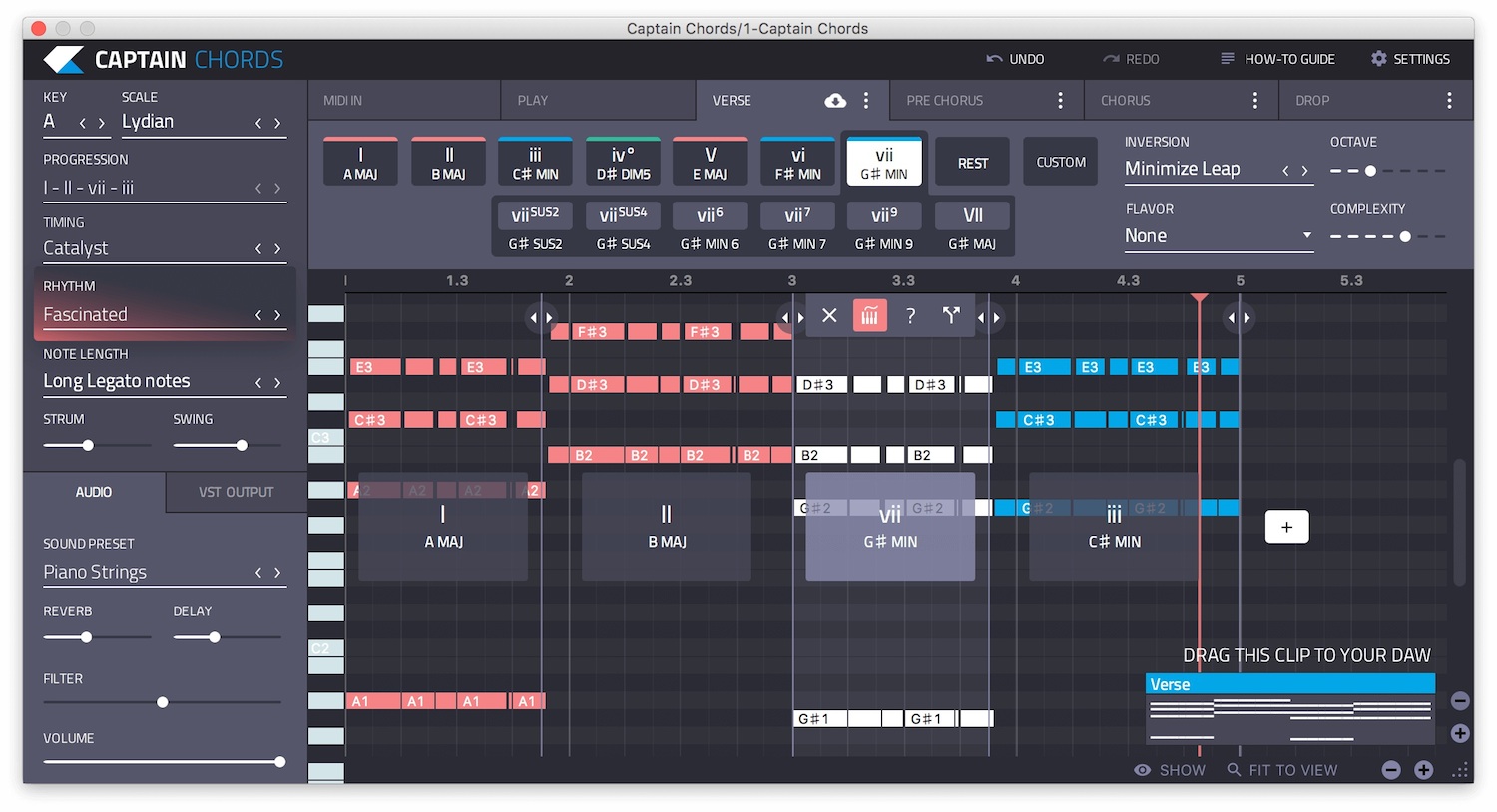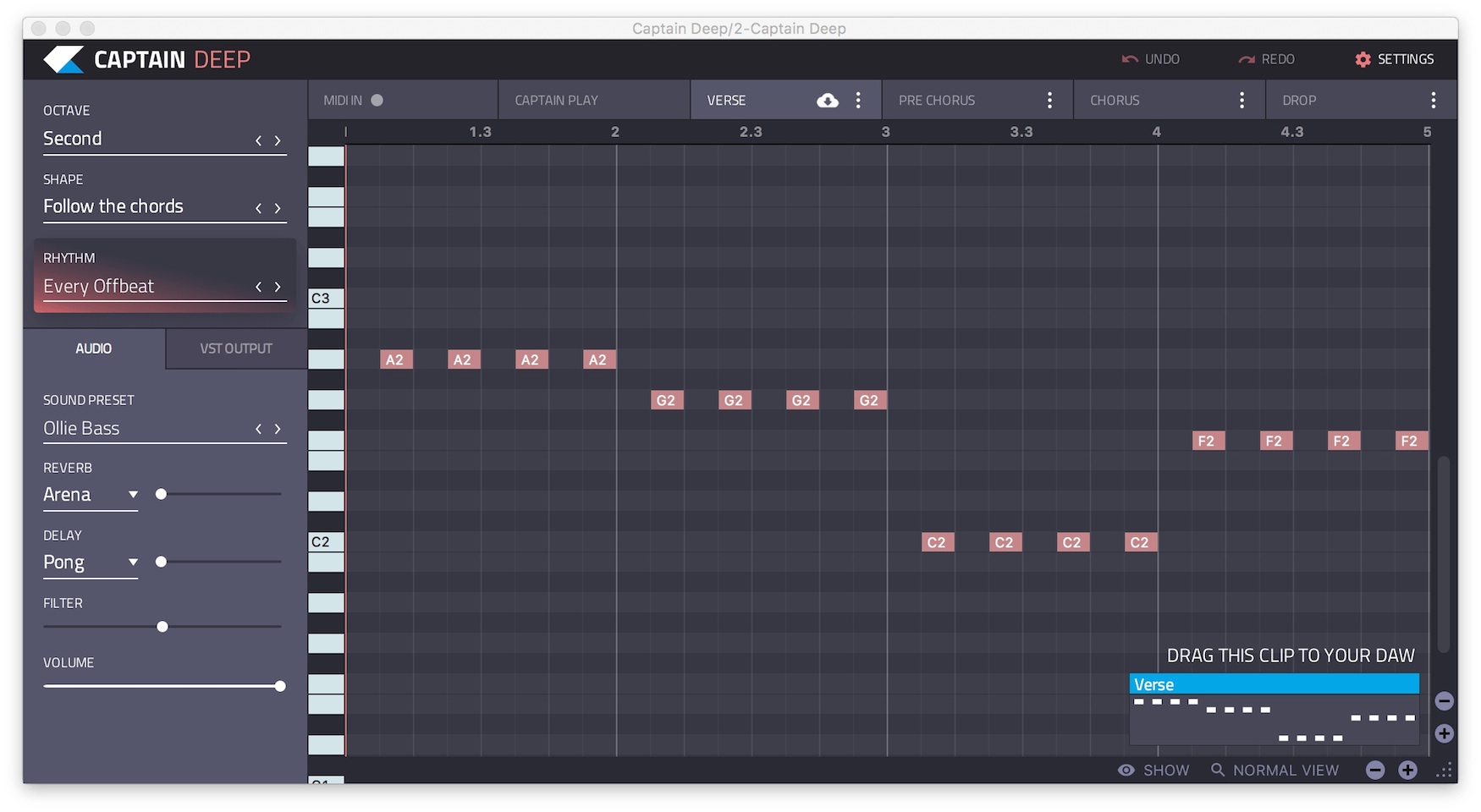New Software Review: Captain Plugins 2.0 by Mixed In Key

The Captain Plugins bundle is the latest in digitally-generated songwriting technology—can it help shape your next song?
There are varying opinions about whether a strong knowledge of music theory helps or hinders the songwriting process.
Some songwriters, Paul McCartney notably among them, practically brag of their lack of theoretical training, while others consider their music theory foundations an essential part of their toolkit.
Technology has only provided more fuel for this ageless debate, and today, some writers and producers rely on the aid of chord generation software to kickstart their creativity—an approach that is perhaps even more polarizing. Accommodations to this kind of workflow can be seen in the Chord and Scale device in Ableton, Cthulhu by Xfer Records, and Cubase’s Chord Tracks.
New to this scene is Captain Plugins by Mixed In Key, a collection of three different modules that each focus on different facets of song creation. Today, we’ll take a closer look at these tools and see what they might do for your creative process.
Features and Use
Captain Plugins’ three MIDI FX modules consist of Captain Chords (used for coming up with MIDI chord progressions), Captain Deep (used for creating bass lines), and Captain Melody (used for crafting melodies). Additionally, there is Captain Play which allows you to perform and write in a more immediate way by using your MIDI controller or computer keyboard.
Upon opening Captain Chords, a dialog pops up asking what key and scale you’d like to write in, or if you’d like to choose both at random. The scale list is pretty comprehensive, including Major, Minor, Blues, Pentatonic, Locrian, Aeolian, etc., though it’s important to note the options here are not as extensive as the scales included in Ableton Push or Logic’s built-in scales. After making your selection in the initial dialog, a three-note chord lasting one bar will appear on a grid. From there, you can add more chords and choose which root and type you’d like, as well as modify its duration or add rests.
There are also options to modify the chords’ Flavor (e.g. Maj 7, Min 7, Add 6, etc.), Complexity, Rhythm, Note Length, and more. The default chord block can be transformed with the Rhythm and Note Length menus for added variation in the way the pattern is played. While Captain Chords makes it very easy to quickly come up with a chord progression from scratch, you can also choose between 69 major and 68 minor progressions in the Chords menu.
There are tabs for organizing song sections such as Pre-Chorus, Chorus, and Drop, and each of these tabs can have an independent progression. There are over 150 instruments to choose from, and while some of the sounds offered in Captain Chords are decent, I find the option of being able to drag and drop a carefully-crafted MIDI progression directly into my DAW (where I can access my full library of sounds) is a really fantastic feature.
Captain Chords 2.0 also includes some newly-added modifiers (Strum, Swing, and Space), which are used for creating unique MIDI patterns. Strum offsets the MIDI notes in a similar way to how a guitar player would rake each note in a chord. Swing shapes the funkiness of the groove, and Space allows you to add additional space in between the rhythms of the chords via an Amount knob and Preset selection. You can see a video walkthrough of these new features here.
Captain Deep utilizes interplugin communication technology. This means that as long as you keep your instance of Captain Chords open, Captain Deep will automatically detect your chord progressions and immediately offer you a “bass”-ic root progression that will follow your chords. You can then change the rhythm and playing style to quickly generate a bass line that will work in key.
Arguably, the preset rhythmic patterns found in Captain Deep are geared towards House- and EDM-style productions, but there are still a lot of useful patterns that lend to other genres. Captain Deep also has a Shape control that changes the movement of the bass progression, so for instance, the bass notes could move parallel (following the roots of the chords), or against the chords to create some extra tension.
Finally, Captain Melody, like Captain Deep, is a monophonic note generator that is tied to progressions created in Captain Chords. While this plugin doesn’t have Deep’s Shape control, it instead offers a Tension menu, along with options for Patterns. Tension determines how closely the notes in the generated melody adhere to the notes in your chosen scale, and also identifies the ones that may or may not clash with the chords.
To Be Critical
The entire Captain Plugins collection is fairly inexpensive at $79, but even at this modest price point I feel there are some things that could be improved.
For one, the ability to edit individual notes within chords directly from the Captain Chords interface would be handy, so I don’t have to make a “good enough” MIDI pattern only to export it into my DAW for further editing.
Additionally, the MIDI patterns for Captain Deep are nice for synth basses, but I wish they included some that work well for programming electric and acoustic bass grooves too. In fact, if Captain Chords could make expansion packs for different genres and styles, I think it would be a welcome addition. I would personally love to see packs added for cinematic orchestration and Motown-style bass in the future.
Another potentially big downside of this collection is that you need to be connected to Wi-Fi in order for the plugins to function properly. They will open in offline mode if you’re not connected to the internet, but you will only be able to utilize their built-in sounds (which are good but not incredible), and access only the MIDI that you’ve already programmed.
Summing it Up
Will Captain Plugins by Mixed In Key write great music for you? Probably not. But it might kickstart your next idea, or quickly help you find a new chord that will make your song really stand out. At its relatively affordable price point, it does things that other MIDI chord generation plugins simply cannot.
On top of that, Mixed In Key has announced two new products, Captain Hook and Captain Beat, and if you buy the current collection, you will automatically receive both of these plugins for free upon their release.
If you’re in need of a tool that you can treat as an online digital songwriting collaborator, Captain Plugins may be exactly what you’ve been looking for.
Please note: When you buy products through links on this page, we may earn an affiliate commission.







